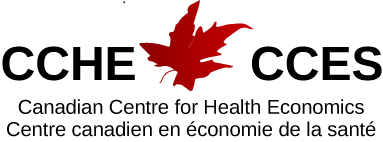CCHE Seminar: Jill Furzer, University of Toronto
Relative Age and Mental Health Disorder Misidentification
Abstract: The youngest students in a grade are known to be diagnosed with attention deficit hyperactivity disorder (ADHD) at higher rates than their older classmates. It is still unclear whether this difference results from over-diagnosis of younger students or under-referral of older peers. We address this direction issue through the use of a novel regression discontinuity approach based on the discordance between parent and teacher behavioural assessments from a nationally representative Canadian survey. We find evidence of both over and under-assessment for the youngest and oldest in a grade, respectively. There are strong gender aspects to this, however, with females consistently under-assessed for ADHD severity and males over-assessed, regardless of relative age. The relative age effect appears driven by the under-assessment of the oldest females in a grade, aligning with a growing medical consensus that ADHD is often missed in girls. We find teacher training plays an important role in mitigating relative age effects and demonstrate a feedback loop between parents and teachers assessments that culminate to relative age effects in misdiagnosis based on relative age over time.
Jill Furzer is a Ph.D. Candidate at the Institute of Health Policy, Management, and Evaluation at the University of Toronto. She holds an M.A. in Economics from the University of Toronto and received her B.A. Honours in Economics at the University of Alberta. Her research interests are in health, education and behavioural economics with a focus on econometric methods.
Join the CCHE Health Economics seminar series mailing list by sending a request to cche@utoronto.ca
 |
 |
Related Events

Sign up for IHPME Connect.
Keep up to date with IHPME’s News & Research, Events & Program, Recognition, e-newsletter.
Subscribe to Connect Newsletter
Get in Contact
Communications
Marielle Boutin
Email Address: ihpme.communications@utoronto.ca




